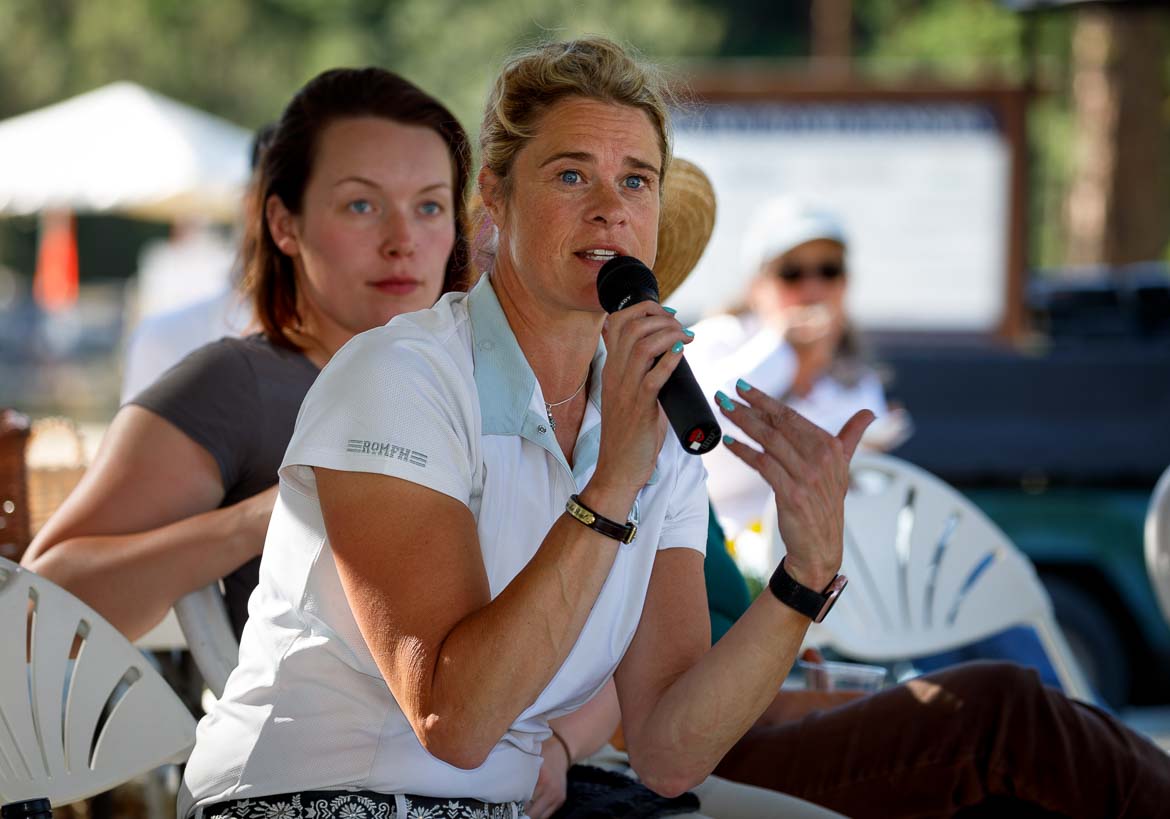Something the horse industry shares with the rest of the world is that there is always something about which to complain! Whether it is that things are too expensive, shows are too busy or even just helmet fit–there are as many opinions as there are riders willing to express them. Yet the number of riders and trainers who are willing to discuss the issues outside of their own barn doors suddenly plummets to a few voices, who tend to become the face of the entire industry.
Equestrian organizations encourage people to “have your voice be heard”, but, at the end of the day, most people choose not to do so. Whether because they feel it won’t make a difference, or that their interest is low, most people tend to keep comments to the people who surround them. Small banter at lessons never moves past the arena gates, and the industry plods forward – desperate for feedback it doesn’t get.
There are individuals who speak up, of course. Riders, trainers and owners often voice their opinions on everything from rule changes to training techniques to apparel, and even if you don’t agree with them on every point, they often have interesting things to say. However, too often this never moves beyond our own Facebook pages. We may think that by posting a status we are eliciting change in our industry, but the reality is, we are speaking to our own audiences. If we continue to express our views mostly to our closest friends and clients, we don’t open a discussion in a place where real change can be made. I think it is important to push beyond our comfort zones to have our voices be heard at the state and national organizational levels.

That said, getting involved can be difficult. As much as organizations claim they want input, the process can be mired in “popularity contests” and crowded feedback pages. Some organizations that say they want your help are sometimes so bogged down it is impossible to figure out how to be involved. Others claim to want new people but continue to see the same faces in their leadership roles. Members often don’t know what these people do, who takes the time to get involved, how they vote or if they fulfill the responsibilities they are given. Grumbling that “it’s always the same people” in leadership overshadows the fact that newcomers fail to run because they feel they’ll never get the needed votes.
I have a passion for my industry, and a difficult time not speaking up when presented with the multiple issues we are faced with in horse care, showing, training and teaching. I think the process of speaking to, and with, my fellow horsemen is exciting and interesting, and I passionately want to be involved in the process of continuing to better our sport – yet, even with a strong drive to be involved, I have found it hard to break into the circle.
So how do we get involved–and have it matter?
- First: Put aside the idea that it isn’t worth it, that it doesn’t matter or that I “just don’t have time”. I “don’t have time” as much as the next guy, yet I attend board meetings, conferences, and clinics. My recent participation in the USHJA Jumper Championships was another opportunity to get involved in a program and meet more horse people that are excited about the sport and getting involved.
- Second: Meet people. We have to put ourselves out there. Regardless of what is popular, or our personally perceived status. You may not think your opinion matters, but you are someone who has an active interest, and that means you have a value in the industry. Talk to people – find out why things are the way they are, tackle problems and be willing to share your thoughts. If you truly hate speaking in public, don’t feel you write well or just have a hard time articulating your thoughts – ask someone who enjoys that. Just because you don’t love to speak in public, doesn’t mean you don’t know someone who does. Ask them for their help.
- Third: Educate yourself. Please don’t show up somewhere and take possession of the meeting without knowing what you are talking about. This doesn’t mean you need to know all the ins and out of an issue, but be willing to sit and listen to the people who have been there. New ideas are fantastic, as is new energy, but do take the time to hear what people who have been doing it have to say. They’ll know if an idea has been tried before and can at least tell you what the pitfalls were.
- Fourth: Listen. Long Facebook rants where people aren’t interested in learning are a waste of time for the rider who wants to help improve their sport. You and I may have differing opinions, but, quite often, if we listen to both approaches, we may find a compromise, or we may find out that the other person has a better idea. I love a conversation wherein people change their mind based on new information–your ability to listen to ideas that aren’t your own, makes you an asset to any organization.
We have this incredible sport, and people who are so excited about the horse. But not every rule change is a good change. Not every idea pushes the sport further, or takes into consideration potential issues down the road. Our industry–and our Zone in particular–needs people who are active, excited, and, above all else, interested in talking and listening to other riders. In seeking out and actively participating in discussions, we learn more and help keep our sport strong, relevant and fun.



